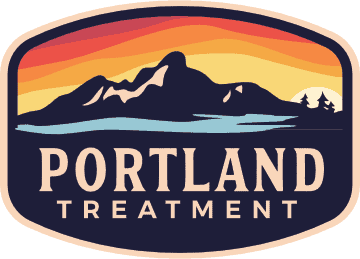Drug & Alcohol Addiction Therapy in Maine
At Portland Treatment, we know that addiction is rarely just about substances, it often affects relationships, emotions, and behavior. That’s why our drug and alcohol addiction therapy services in Maine are designed to address not only the physical side of recovery but also the underlying psychological and relational challenges.
Whether you or a loved one is struggling with substance use disorder, co-occurring behavioral addictions, or the impact of trauma, our therapy programs provide a compassionate and evidence-based path forward.
Types of Addiction Therapy We Offer
Our team uses a range of therapies to meet individual needs. Each client receives a personalized treatment plan that may include:
- Individual Therapy – One-on-one counseling to address personal triggers, trauma, and relapse prevention skills.
- Group Therapy – Peer-supported healing where clients learn from others with shared experiences.
- Family & Couples Addiction Therapy – Restoring trust, improving communication, and healing relationships damaged by substance use.
- Specialized Therapy Tracks – For behavioral concerns like gambling, sex, and porn addiction, which often co-occur with substance use disorders.
Specialty Areas of Focus
Drug and Alcohol Addiction Therapy
Substance use disorder often begins as a way to cope with stress, trauma, or difficult emotions but can quickly spiral into dependence. At Portland Treatment, our drug and alcohol addiction therapy programs help clients address the root causes of substance use while building tools for long-term recovery.
Key components include:
- Detox Integration – Therapy begins during or immediately after medical detox, ensuring that clients have emotional support as their bodies stabilize.
- Evidence-Based Approaches – Our clinicians use therapies like Cognitive Behavioral Therapy (CBT), Dialectical Behavior Therapy (DBT), and Motivational Interviewing to help clients identify triggers and change harmful thought patterns.
Relapse Prevention – Clients learn to anticipate high-risk situations and practice coping strategies to reduce the risk of relapse. - Dual Diagnosis Treatment – For those with co-occurring mental health challenges such as anxiety, depression, or PTSD, therapy integrates both conditions into one treatment plan.
- Family Support – Drug and alcohol misuse can deeply affect loved ones. Family therapy helps rebuild trust and fosters accountability.
Drug and alcohol therapy at Portland Treatment is not one-size-fits-all—it is personalized, trauma-informed, and designed to guide individuals through the emotional, psychological, and relational layers of recovery.
Sex Addiction Therapy
Unhealthy sexual behaviors can be both a cause and effect of substance use disorder. Our sex addiction therapy program addresses compulsive behaviors, shame cycles, and relational harm in a safe, nonjudgmental environment.
Porn Addiction Therapy
Porn addiction can disrupt relationships, concentration, and emotional health. We provide targeted therapy to help individuals retrain thought patterns, rebuild intimacy, and learn healthier coping strategies.
Gambling Addiction Therapy
Many clients battling alcohol or drug addiction also struggle with gambling. We use cognitive-behavioral therapy (CBT) and financial counseling support to address the impulse control issues and high relapse risks of gambling addiction.
Couples Addiction Therapy
Substance use impacts not only individuals but also their partners. Couples therapy at Portland Treatment helps repair relationships through:
- Rebuilding trust
- Learning healthy communication
- Setting boundaries that support recovery
Our Therapy Approaches
| Therapy Type | Focus Area | Best For | Techniques Used |
|---|---|---|---|
| Individual Therapy | Triggers, trauma, relapse skills | Clients needing private, focused care | CBT, DBT, Motivational Interviewing |
| Group Therapy | Peer support, shared healing | Clients seeking community accountability | Psychoeducation, relapse prevention groups |
| Family & Couples Therapy | Relationships, communication | Families or partners impacted by SUD | Family Systems Therapy, EFT |
| Specialized Tracks | Sex, porn, gambling addictions | Clients with co-occurring behavioral addictions | CBT, trauma-informed therapy |
Why Choose Portland Treatment for Addiction Therapy?
- Comprehensive Care – Therapy is fully integrated with medical detox and inpatient treatment for a holistic approach.
- Licensed Specialists – Our therapists are trained in trauma-informed care, CBT, DBT, and other evidence-based methods.
- Personalized Approach – No two clients are the same; your therapy plan is tailored to your goals and needs.
- Safe & Supportive Environment – Our Maine-based facility provides privacy, compassion, and structure for lasting recovery.
What is addiction therapy?
Addiction therapy uses evidence-based counseling methods to help individuals manage substance use disorder and underlying mental health or behavioral issues.
Can couples or families attend therapy sessions?
Absolutely. Addiction affects loved ones, and we encourage family and couples addiction therapy as part of the healing process.
Is therapy available as part of inpatient treatment?
Yes, therapy is a core component of our residential treatment program in Maine.
What approaches does Portland Treatment’s therapists use?
We utilize CBT, DBT, trauma-informed therapy, motivational interviewing, and holistic practices to support recovery.
Sources
National Institute on Drug Abuse. (2020). Treatment and Recovery. In Drugs, Brains, and Behavior: The Science of Addiction. Retrieved from https://nida.nih.gov/publications/drugs-brains-behavior-science-addiction/treatment-recovery
McGovern, M. P., & Carroll, K. M. (2003). Evidence-based practices for substance use disorders. Psychiatric Clinics of North America, 26(2), 215-232. Retrieved from https://www.ncbi.nlm.nih.gov/pmc/articles/PMC3678283/
Kelly, T. M., Daley, D. C., & Douaihy, A. (2013). Integrated treatment of substance use and psychiatric disorders. Social Work in Public Health, 28(0), 388-406. Retrieved from https://www.ncbi.nlm.nih.gov/pmc/articles/PMC3753025/
Spivak, S., Strain, E. C., Spivak, A., Cullen, B., Ruble, A. E., Parekh, V., Green, C., & Mojtabai, R. (2020). Integrated dual diagnosis treatment among United States mental health treatment facilities: 2010 to 2018. Drug and Alcohol Dependence, 213, Article 108074. https://doi.org/10.1016/j.drugalcdep.2020.108074
Substance Abuse and Mental Health Services Administration. (2014). Integrated Treatment for Co-Occurring Disorders Evidence-Based Practices (EBP) Kit. Retrieved from https://library.samhsa.gov/sites/default/files/ebp-kit-the-evidence-10242019.pdf
Farhoudian, A., et al. (2022). Barriers and facilitators to substance use disorder treatment: A systematic review. Addiction Science & Clinical Practice. Retrieved from https://www.ncbi.nlm.nih.gov/pmc/articles/PMC9434658/
Mayoclinic.org. (n.d.). Alcohol use disorder — diagnosis and treatment. Retrieved from https://www.mayoclinic.org/diseases-conditions/alcohol-use-disorder/diagnosis-treatment

